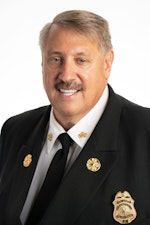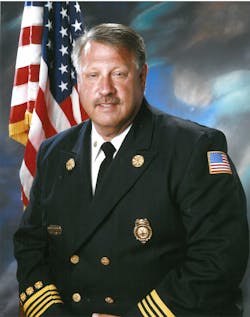Every so often, you hear of an individual who wants to commit suicide but can’t do it themselves, so they do something that provokes a police officer to shoot them, something like pointing a firearm at the police. These incidents are usually labeled Suicide by Cop.
After reading yet another story about a firefighter being fired for posting something on a social media website, I think we need a similar term—“Suicide by Social Media.” I have read of too many firefighters and paramedics being terminated over the last several years for something they wrote or a picture they posted on social media.
Sad but real examples
In the most recent example, the headline read, “Texas Firefighter Facing Discipline after Facebook Post Saying He’ll ‘Delay Treatment’ for Black People.” The Facebook post referenced here linked to a story about a pair of San Diego firefighters who were stabbed by a black man. In the comments, a retired Dallas firefighter wrote, “Sad but true. But remember black lives matter.” Then a driver/engineer for the Dallas Fire Department commented, “Sadly, I will delay treatment for more of them as well.” When a news station called to inquire about the intent of his comment, the driver/engineer deleted it. The post is now under investigation by Dallas Fire Rescue (DFR), which does have a social media policy that restricts what employees are allowed to say and/or post when identifying themselves as working for the department or as a City of Dallas employee.
In fairness to the engineer, he has not received any discipline as of this writing, and we will not know what he meant until the investigation is completed by DFR. But if he meant that he would delay a response to a black individual, then, first, why would someone in the EMS and fire profession have that attitude, and second, why would you let the world know your feelings? Haven’t you seen or heard about all the other firefighters and paramedics who’ve faced disciplinary action after posting a comment or picture on such websites as Facebook or Twitter?
In one of the worst cases I have seen, a paramedic virtually committed electronic suicide by posting pictures of herself on Instagram with patients in the back of the ambulance. The patients, who were in obvious need of medical intervention, were neglected while she took these selfies (with the patient in the background). In one picture, she is seen raising her middle finger toward a patient. In some of the postings she wrote, “I hate my job” and “another moron.” Unfortunately, some of the patients in the pictures died. The paramedic does not have to worry about hating her job anymore. She was fired.
Just a couple of months ago, a Mabank, TX, firefighter was fired after he allegedly praised the shooter who killed nine people in a Charleston church. He commented on Facebook, “He needs to be praised for the good deed he has done.” According to a newspaper story, the firefighter said he was misunderstood and claims he was responding to a comment about someone who donated a large sum of money to the victims, not the shooter.
Another firefighter was fired earlier this year after he thought it was a good idea to brag on social media about killing two dogs. Besides singing his own praises, he posted a picture of the two dead dogs laying in blood-stained snow. Then he wrote, “Somebody didn’t put any truth in my warning. Keep your damn dogs on your property.”
Cool down first
We can all probably take a lesson from Abraham Lincoln, Harry Truman and Winston Churchill, who during their time in office would write an angry letter to someone who made them mad—but would never send it. They would put it aside until they cooled down. In the case of Abraham Lincoln, whenever he wanted to tell someone off, he would write a “hot letter” and then write “Never sent, never signed” on it. They learned the art of not hitting the send button way before there even was a send button.
Firefighters and paramedics would be wise to learn these lessons. So, before you go and commit “Suicide by Social Media,” think of the impact your comments or pictures will have and consider how others may see it.

Gary Ludwig
GARY LUDWIG has served in three fire departments over his career: St. Louis, Memphis, and Champaign, IL. His fire, EMS and rescue career spanned a total of 46 years, and he has been a paramedic for over 44 years. Ludwig served as president of the International Association of Fire Chiefs in 2019-20. He has a Master’s degree in Business and Management, has written over 500 articles for professional fire and EMS publications and is the author of seven books.
Connect with Gary
Email: [email protected]
Facebook: Gary Ludwig
Twitter: @ChiefGaryLudwig
Website: garyludwig.com






